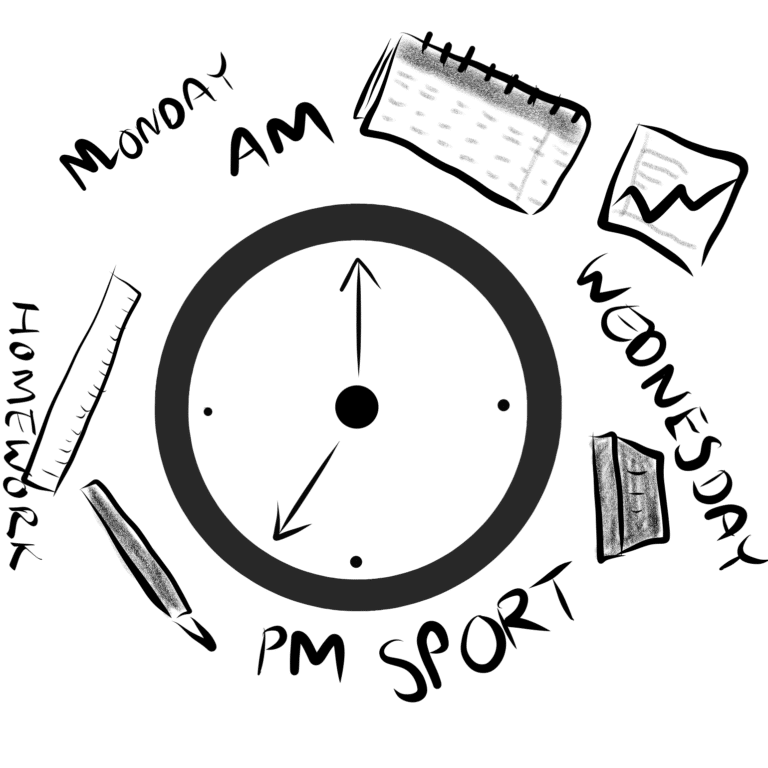
How Going Gluten-Free Transformed our Home
Hi, I’m Melissa, Beth asked me to explain how going gluten-free made a difference in our household. I have a

For those with slow processing speed, there can be a considerable lag between being asked a question and responding. The person is not unintelligent. Often the reverse is true. It all comes back to their mental filing system. Non-dyslexics can file the information away in an orderly manner in their brain. Multiplication facts are stored under basic mathematics facts; birthdays are stored under important dates, and so on.

Information gets pushed under my mental matress in whatever order it arrives.
When asked a question, the dyslexic person must mentally lift the mattress and, propping it up, do a quick shuffle around to find what they are looking for. Hence the delay. If the person also has slow processing speed, the wait is even longer. Therefore, timed tests are hopeless for a child with dyslexia or slow processing and should be avoided. They only increase the child’s sense of shame and cause anxiety.
When I picked Harry up from school today, he told me his brain hurt. Focusing for a full day exhausts him. In the early years of his school life, he couldn’t manage after-school activities. When he was six, I tried taking him to group piano lessons. He was very musical, forever singing and dancing around the house, and he was keen to learn the piano because his sister plays.
The piano session for his age was at 3.30 pm on a Friday (what a dreadful time). By 4.00 pm, he was rolling around on the floor in the middle of the group holding his head. The poor thing’s mental mattress was utterly overstuffed. We stopped going along to the lessons and avoided all activities at that time slot.
I know Harry can’t handle multiple instructions. Whenever I ask him to do more than one thing, he forgets at least one request. Accepting that he needs clear direction on a task is a work in progress for me. I’m used to multi-tasking. Even though I know this isn’t how Harry operates, I still get frustrated by his slower approach.
I often get him to repeat back to me what I have asked him to do. Making eye contact is also a good strategy. Now he is in his teens, and I sometimes struggle to know if he hasn’t understood me or is just being a typical teen. Getting him to repeat the instruction back means I at least know he understands.
Him doing the task can be a whole other challenge. I asked him to wash the car the other day. He obviously didn’t want to do it, although I pay him for this chore. He ended up putting it off so long he washed the car in the dark. You can imagine the finished result! That was pure teen rebellion, and it had nothing to do with slow processing.
The world is fast-paced. There’s something to be said for taking time to smell the roses. Ellen Braaten has an excellent article on respecting a child’s processing speed here.
Harry has no comprehension of how long it takes to carry out a task. On top of this, his ADD means he is the king of procrastination. I give time frames for completing tasks, such as “Before dinner, I need you to…” I then set a timer.
I have bought Harry several watches over the years, but he doesn’t like wearing them. He uses his phone as a clock, which is problematic during lesson time as teachers don’t want him looking at a phone.
For appointments, he put reminders on his phone. However, if the appointment is in class time, such as his music lesson, he writes the time on his hand. He then must check the clock in the room. Needless to say, he often misses his music lessons!
For ideas on how teachers can help a child with slow processing speed click here.
The assessor picked up Harry’s slow processing speed when he was tested for dyslexia. His auditory processing issues were discovered at the same time. Click here for information on auditory processing disorder. This affiliate link helps to fund my website.
Being able to take his tests in a quiet room makes a massive difference to Harry. He finds it difficult to focus when there is a lot of background noise. However, when he has the correct examination accommodations, he tests well.
The world of school and tests is not easy for children with slow processing speed. As parents, we need to accept our children’s issues, help them when they struggle and advocate for them with their teachers.
Harry may never grow out of his slow processing, but I’m confident he will find a job where it won’t be a problem.
I taught my son to read and spell in 30 minutes a day. Here are my affiliate links to the resources I used, All About Spelling and All About Reading.
If your child also struggles to learn the multiplication tables, check out this blog post on how using stories will help them remember the facts.
Speechify is an app that can help dyslexic children as it reads online text. Here is my affiliate link.

Hi, I’m Beth. Seven years ago, when I discovered my son had dyslexia, I had a ‘light-bulb’ moment and understood this explained many of my own difficulties. Ever since, I’ve been on a mission to discover the best ways to wrestle what I like to call the dyslexia octopus.

Hi, I’m Melissa, Beth asked me to explain how going gluten-free made a difference in our household. I have a

It’s 4 AM and I’m going over what happened to Harry at school yesterday, wondering how best to help. My